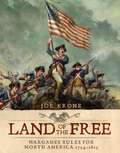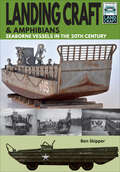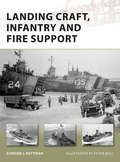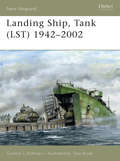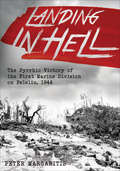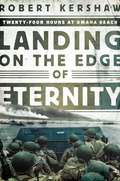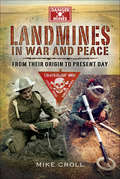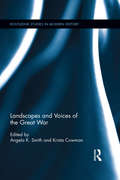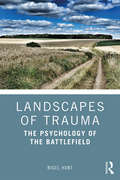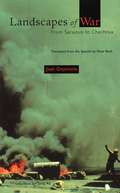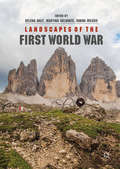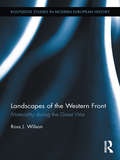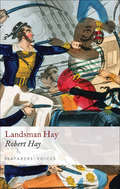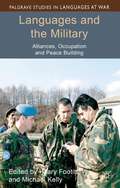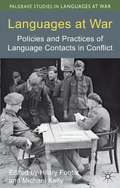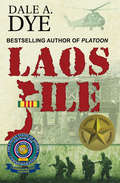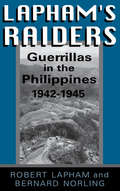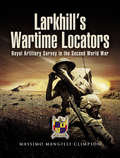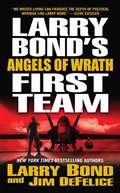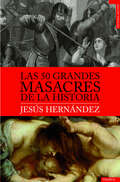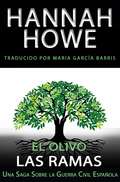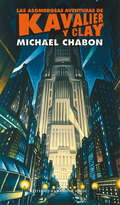- Table View
- List View
Land of the Free
by Joe KroneThis set of rules allows players to start with small warbands of 10-20 miniatures of any scale and develop their forces over time, building them up into armies of hundreds of models! No matter the size of a player's collection, these rules will provide an enjoyable game. England and France set upon the New World with a fury, building settlements whenever they could hack a clearing out of the wilderness. Expansion brought them into contact with the natives, with whom they established trade and commerce. The New World was vast but not nearly big enough for the ambitions of these powers and conflict was inevitable. In Europe they call it the Seven Years' War, but in the New World the French and Indian War was fought for dominance over this new land. Nine long years of bloodshed saw England triumphant, but the war had placed great burdens upon colonist and King alike. Tariffs were created to pay for the war but the newly formed colonies quickly realized they were being treated unfairly. "No taxation without representation" became the rallying cry and a cultural revolution ignited into full rebellion. The American Revolution birthed a new nation that faced trials from the very beginning, not least a new conflict against England - the War of 1812. After nearly three years of warfare, the young nation stood strong and started down the road to becoming a new world power.Each player will build their forces using a unique system of command points. Throughout the game these command points will be used to perform actions, resolve morale tests, and reduce the enemy's will to fight. Resource management is determining what command points will be used for which elements and which actions. Risk management is evaluating whether you should extend your command point resources at the danger or exhausting your army and making them susceptible to counter-attack. Victory is determined by who holds the field of battle and which objectives were achieved.
Landing Craft & Amphibians: Seaborne Vessels in the 20th Century (LandCraft #10)
by Ben SkipperFrom the wars of antiquity to the recent events in South West Asia, landing craft and amphibians have been an ever-present sea borne and battle space asset in one form or another for the commander wanting to get boots on the ground. Refined during the Second World War with the introduction of the Amphibian, and again with the perfection of the hovercraft, the landing craft’s finest hour in popular consciousness occurred on 6 June 1944. This LandCraft title focuses on Landing Craft and Amphibian development during the Second World War as versatile sea borne assets. The book also looks at the post-war evolution of the Landing Craft and Amphibians, and how the simple concepts of their design remain alive and in use almost a century later. This LandCraft title offers the modeler an exciting range of subjects, era and theater choices, especially those modeling the Second World War.
Landing Craft, Infantry and Fire Support
by Peter Bull Gordon RottmanDescribed by one soldier as "a metal box designed by a sadist to move soldiers across the water," the Landing Craft, Infantry was a large beaching craft intended to transport and deliver an infantry rifle company to a hostile shore, once the beachhead was secured. The LCI, or as it was more commonly known, "Elsie Item," and its vehicle-delivery counterpart, the Landing Ship, Medium (LSM), were widely used by the allies during amphibious operations during World War II. They were mid-sized beaching craft filling the gap between the much larger LST and the many types of smaller bow-ramped, open cargo compartment landing craft. The LCI and LSM were the smallest landing ships assigned a Bureau of Ships hull number. In 1943 the hulls of the LCI and LSM were used as the basis for a new type of gunboat. These specialized fire-support crafts were intended to place suppressive fire on the landing beaches using automatic cannons, rockets, and mortars. While LCI and LSM were phased out after the Korean War, some fire support craft remained in use throughout the Vietnam War.Written by the author of Osprey's popular book on Landing Ship, Tanks, this book tells the developmental and operational history of this important tool of American amphibious military strategy that spanned three wars.From the Trade Paperback edition.
Landing Ship, Tank (LST) 1942-2002
by Tony Bryan Gordon RottmanThe Landing Ship Tank (LST) is one of the most famous of the many World War II amphibious warfare ships. Capable of discharging its cargo directly on to shore and extracting itself, the LST provided the backbone of all Allied landings between 1943 and 1945, notably during the D-Day invasion. Through its history, the LST saw service from late 1942 until late 2002, when the US Navy decommissioned the USS Frederick (LST-1184), the last ship of its type. This book reveals the development and use of the LST, including its excellence beyond its initial design expectations.
Landing Zones: Southern Veterans Remember Vietnam
by James R. WilsonLanding Zones brings to life the dramatic, gripping, and often painful stories of twenty-four Vietnam Veterans from the American South. The men and women interviewed here represent a remarkable range of experience, including a marine rifleman, a helicopter pilot, an army nurse, a prisoner of war, a riverboat gunner, and the commanding general William Westmoreland. Skillfully interviewed by James R. Wilson, a journalist and Army press officer in Vietnam, each narrative explores and describes the war's events before following the veterans home and carrying them to the present.These stories focus on a uniquely southern view of Vietnam. In terms of numbers the South shouldered more than its share of human cost--31 percent of Americans who served came from one of the eleven states of the old Confederacy, and 28 percent of the dead were southerners. Southerners also brought to Vietnam certain shared cultural tastes and a particularly southern heritage of honor in military service stemming from the Civil War. For many, as their testimony reveals, a sense of patriotism was tested and questioned by the horrors of war, and for others that patriotism was a continued source of strength.Individually and collectively, however, these oral histories make up a picture of war that prevents us from forgetting the truth as one veteran put it: "Vietnam was not one war, but a thousand little nasty wars."
Landing in Hell: The Pyrrhic Victory of the First Marine Division on Peleliu, 1944
by Peter MargaritisA detailed history and analysis of the most controversial amphibious operation in the Pacific during WWII: the Battle for Peleliu. On September 15, 1944, the United States invaded the tiny Pacific island of Peleliu, located at the southern end of the Palau Islands. Boasting a large airfield from which the Americans could mount bomber campaigns, Peleliu was a strategically essential part of Gen. MacArthur&’s long-awaited liberation of the Philippines. With the famed 1st Marine Division making the amphibious assault, Pacific High Command was confident that victory would be theirs in just a few days. They were drastically wrong. A mere week after landing, having sustained terrific losses in fierce combat, the 1st Marine Regiment was withdrawn. The entire division would be out of action for six months after sustaining the highest unit losses in Marine Corps history. This book analyzes the many things that went wrong in the Battle for Peleliu, and in doing so, corrects several earlier accounts of the campaign. It includes a comprehensive account of the presidential summit that determined the operation, details of how new weapons were deployed, a new enemy strategy, and command failure in what became the most controversial amphibious operation in the Pacific during WWII.
Landing on the Edge of Eternity: Twenty-four Hours At Omaha Beach
by Robert KershawA visceral and momentous narrative of the first twenty-four hours of D-Day on Omaha Beach: the most dramatic Allied landing of World War II. Before World War II, Normandy’s Plage d’Or coast was best known for its sleepy villages and holiday destinations. Early in 1944, German commander Field Marshal Erwin Rommel took one look at the gentle, sloping sands and announced "They will come here!” He was referring to "Omaha Beach”—the prime American D-Day landing site. The beach was subsequently transformed into three miles of lethal, bunker-protected arcs of fire, with seaside chalets converted into concrete strongpoints, fringed by layers of barbed wire and mines. The Germans called it “the Devil's Garden." When Company A of the US 116th Regiment landed on Omaha Beach in D-Day’s first wave on 6th June 1944, it lost 96% of its effective strength. Sixteen teams of US engineers arriving in the second wave were unable to blow the beach obstacles, as first wave survivors were still sheltering behind them. This was the beginning of the historic day that Landing on the Edge of Eternity narrates hour by hour—rom midnight to midnight—tracking German and American soldiers fighting across the beachhead. Mustered on their troop transport decks at 2am, the American infantry departed in landing craft at 5am. Skimming across high waves, deafened by immense broadsides from supporting battleships and weak from seasickness, they caught sight of land at 6.15. Eleven minutes later, the assault was floundering under intense German fire. Two and a half hours in, General Bradley, commanding the landings aboard USS Augusta, had to decide if to proceed or evacuate. On June 6th there were well over 2,400 casualties on Omaha Beach – easily D-Day’s highest death toll. The Wehrmacht thought they had bludgeoned the Americans into bloody submission, yet by mid-afternoon, the American troops were ashore. Why were the casualties so grim, and how could the Germans have failed? Juxtaposing the American experience—pinned down, swamped by a rising tide, facing young Wehrmacht soldiers fighting desperately for their lives, Kershaw draws on eyewitness accounts, memories, letters, and post-combat reports to expose the true horrors of Omaha Beach. These are stories of humanity, resilience, and dark humor; of comradeship and a gritty patriotism holding beleaguered men together. Landing on the Edge of Eternity is a dramatic historical ride through an amphibious landing that looked as though it might never succeed.
Landmines in War and Peace: From Their Origin to Present Day (Danger Mines)
by Mike CrollLand mines and their antecedents have been used on the battlefield from ancient times, through the world wars, to the modern conflicts in the developing world. Their use in the developing world caused tens of thousands of civilian casualties, and the resulting international outrage transformed rapidly into a highly effective global movement to ban land mines and a multi million dollar mine action business. This book describes how technology and military tactics defined land mine development and deployment, why they are such an effective weapon of war, and how an unlikely alliance of soldiers, peace activists, development workers and celebrities succeeded in banning the use of antipersonnel mines. Comparisons are made between the post WW2 clearance of around 100 million land mines in Europe and contemporary efforts to clear a similar number in the developing world. By 1947 Europe was largely mine free, yet after nearly 20 years and expenditure of $4 billion the land mine crisis in the developing world continues. The elusive search for the easy way to clear mines is described. Despite experiments with machines, airships, rats and explosive clearance methods, mine clearance remains a hazardous, labor-intensive task undertaken by teams of deminers using metal detectors and needle-like probes.
Landscape Turned Red: The Battle of Antietam
by Stephen W. Sears&“The best account of the Battle of Antietam&” from the award-winning, national bestselling author of Gettysburg and Chancellorsville (The New York Times Book Review). The Civil War battle waged on September 17, 1862, at Antietam Creek, Maryland, was one of the bloodiest in the nation&’s history: in this single day, the war claimed nearly 23,000 casualties. In Landscape Turned Red, the renowned historian Stephen Sears draws on a remarkable cache of diaries, dispatches, and letters to recreate the vivid drama of Antietam as experienced not only by its leaders but also by its soldiers, both Union and Confederate. Combining brilliant military analysis with narrative history of enormous power, Landscape Turned Red is the definitive work on this climactic and bitter struggle. &“A modern classic.&” —The Chicago Tribune &“No other book so vividly depicts that battle, the campaign that preceded it, and the dramatic political events that followed.&” —The Washington Post Book World &“Authoritative and graceful . . . a first-rate work of history.&” —Newsweek
Landscapes and Voices of the Great War (Routledge Studies in Modern History #22)
by Angela K. Smith Krista CowmanThis volume aims to provide a wider view of First World War experience through focusing on landscapes less commonly considered in historiography, and on voices that have remained on the margins of popular understanding of the war. The landscape of the western front was captured during the conflict in many different ways: in photographs, paintings and print. The most commonly replicated voicing of contemporary attitudes towards the war is that of initial enthusiasm giving way to disillusionment and a sense of overwhelming futility. Investigations of the many components of war experience drawn from social and cultural history have looked to landscapes and voices beyond the frontline as a means of foregrounding different perspectives on the war. Not all of the voices presented here opposed the war, and not all of the landscapes were comprised of trenches or flanked by barbed wire. Collectively, they combine to offer further fresh insights into the multiplicity of war experience, an alternate space to the familiar tropes of mud and mayhem.
Landscapes of Trauma: The Psychology of the Battlefield
by Nigel HuntIntegrating trauma studies with historical research and social psychology, Landscapes of Trauma examines a range of battlefields from across history, including Waterloo, the Battle of Sedan, the Battle of the Ebro and the Battle of Normandy, to bring to light what these battlefields say about our collective and individual psyches. Hunt explores how war shapes the nature of trauma, not only by its innate horror but also by the historical and societal contexts it is fought in, from the cultural and social conventions of the period to the topography of the settings. This book provides a deep analysis of how war is experienced and remembered in different eras and by different generations. Moving beyond the clinical concept of post-traumatic stress disorder, Hunt discusses how trauma can be understood socially and historically, as well as through the lens of individual suffering. This book also investigates the psychological foundations of memorialisation, remembrance and commemoration that shape the legacy of the battles discussed. Using interviews with veterans, their letters, journals and diaries, as well as literary and historical sources, Hunt locates the battlefield as a place where humans explore the parameters of human behaviour, thought and emotion. This book is in important resource for students and scholars interested in the psychology of trauma and war, as well as military history.
Landscapes of War: From Sarajevo to Chechnya
by Juan Goytisolo Peter BushAn incisive examination of the tensions that exist between the West and Islamic societies of Europe, North Africa, and the Middle East. Provides rich historical analysis and reportage of life in four explosive war-zones: Sarajevo, Algeria, the West Bank and Gaza, and Chechnya. Translated by Peter Bush.
Landscapes of the First World War
by Vanda Wilcox Selena Daly Martina SalvanteThis comparative and transnational study of landscapes in the First World War offers new perspectives on the ways in which landscapes were idealised, mobilised, interpreted, exploited, transformed and destroyed by the conflict. The collection focuses on four themes: environment and climate, industrial and urban landscapes, cross-cultural encounters, and legacies of the war. The chapters cover Europe, Russia, the Middle East, Africa and the US, drawing on a range of approaches including battlefield archaeology, military history, medical humanities, architecture, literary analysis and environmental history. This volume explores the environmental impact of the war on diverse landscapes and how landscapes shaped soldiers’ experiences at the front. It investigates how rural and urban locales were mobilised to cater to the demands of industry and agriculture. The enduring physical scars and the role of landscape as a crucial locus of memory and commemoration are also analysed. The chapter 'The Long Carry: Landscapes and the Shaping of British Medical Masculinities in the First World War' is open access under a CC BY 4.0 license via link.springer.com.
Landscapes of the Western Front: Materiality During the Great War (Routledge Studies in Modern European History)
by Ross WilsonThis book examines the British soldiers on the Western Front and how they responded to the war landscape they encountered behind the lines and at the front. Using a multidisciplinary perspective, this study investigates the relationship between soldiers and the spaces and materials of the warzone, analyzing how soldiers constructed a ‘sense of place’ in the hostile, unpredictable environment. Drawing upon recent developments within First World War Studies and the anthropological examination of the fields of conflict, an ethnohistorical perspective of the soldiers is built which details the various ways soldiers responded to the physical and material world of the Western Front. This study is also grounded in the wider debates on how the First World War is remembered within Britain and offers an alternative perspective on the individuals who fought in the world’s first global conflagration nearly a century ago.
Landsman Hay (Seafarers' Voices)
by Robert HayIn 1803, at the age of fourteen, Robert Hay ran away from home to join the Royal Navy, and for the next eight years experienced the trials and tribulations of a sailors life. Intelligent, agile and willing, he became a boy servant to a series of officers, all of whom helped advance his education as was the practice of the day. But the taxing conditions of life onboard he found detestable and he was, after an action off the French coast, sorely tempted to desert but the well known and ruthless treatment of deserters, if caught, deterred him this time. He was then posted to the East Indies where he was badly wounded and nearly lost a leg before returning home after five years with £14 and fourteen days leave to look forward to. His next ship ran aground off Plymouth and, this time, he took the opportunity to desert but was then quickly taken by a press gang. Terrified of being identified, he managed to escape and reach the Scotland and home. As well as a wonderful yarn, the book is also an impressive description of early nineteenth-century naval life, and his ability as a writer was considerable. His descriptions of his remarkable experiences in the East Indies are full of the flavour of the region, while the sailors natural inclination to drink and debauchery is told with verve. But also running through the narrative are many fine observations on nature and on the human condition. A true and vivid account of the sailors life of this era.
Language and Revolution: Making Modern Political Identities (Cummings Center Series #Vol. 16)
by Igal HalfinThis work examines the role of language in forging the modern subject. Focusing on the idea of the "New Man" that has animated all revolutionaries, the present volume asks what it meant to define oneself in terms of one's class origins, gender, national belonging or racial origins.
Languages and the Military
by Michael Kelly Hilary FootittThrough detailed case studies ranging from the 18th century until today,this book explores the role of foreign languages in military alliances, in occupation and in peace building. It brings together academic researchers and practitioners from the museum and interpreting worlds and the military.
Languages at War
by Michael Kelly Hilary FootittThrough detailed case studies ranging from the 18th century until today,this book explores the role of foreign languages in military alliances, in occupation and in peace building. It brings together academic researchers and practitioners from the museum and interpreting worlds and the military.
Laos File (Shake Davis Series)
by Dale A. DyeMilitary Writers Society of America 2011 Book Award winner: From the bestselling author of Platoon comes a military thriller about one Marine’s quest to leave no POW behind. The death of a salty old senior noncommissioned officer who ran special operations in Vietnam leads US Marine Gunner Shake Davis on a shocking and potentially lethal mission to find out what happened to hundreds of American prisoners of war. With “plenty of action and lots of military detail” (Vietnam Veterans of America), Laos File is a great read for fans of Tom Clancy and W. E. B. Griffin.
Lapham's Raiders: Guerrillas in the Philippines, 1942–1945
by Robert Lapham Bernard NorlingA US soldier recounts his extensive guerilla campaign against the Japanese occupation of the Philippines in this thoroughly researched WWII memoir.On December 8th, 1941, the day after the attack on Pearl Harbor, the Japanese invaded the Philippine Islands, catching American forces unprepared and forcing their eventual surrender. Among the American soldiers who managed to avoid capture was twenty-five-year-old Lieutenant Robert Lapham, who played a major role in the resistance to the brutal Japanese occupation.After emerging from the jungles of Bataan, Lapham built and commanded a devastating guerrilla force behind enemy lines. His Luzon Guerrilla Armed Forces evolved into an army of thirteen thousand men that eventually controlled the entire northern half of Luzon's great Central Plain, an area of several thousand square miles. In Lapham’s Raiders, Lapham and historian Bernard Norling reconstruct the drama of the LGAF through letters, records and the recollections of Lapham and others.Lapham’s Raiders sheds light on the clandestine activities of the LGAF and other guerrilla operations, assess the damages of war to the Filipino people, and discuss the United States' postwar treatment of the newly independent Philippine nation. It also examines Japan's wartime failures in the Philippines and elsewhere, and of America's postwar failure to fully realize opportunities there.
Larkhill’s Wartime Locators: Royal Artillery Survey in the Second World War
by Massimo Mangilli-Climpson"Artillery survey suffered during the pacifist inter-war period but the war in North Africa highlighted its importance. By the end of 1942 ten major survey units had been formed. Nine were conventional serving in all the main theatres, including the Far East. They played a key part in victories such as El Alamein, Anzio, Caen and Imphal, with their flash-spotting, sound-ranging and surveying of gun lines. A tenth regiment was secretly involved tracing the flight of Hitlers V1 and V2 rockets in order to locate their launch bases.These soldier-scientists were all trained at the School of Survey, Larkhill, on Salisbury Plain. Their work took them to the front line and a considerable number were casualties or became POWs.This is the story of the contribution of these 4,000 men who made up the Survey Regiments. It tells of the heroes, such as Robert (Tug) Wilson of the SBS and the skilful men whose actions under the most difficult and dangerous conditions have received little acknowledgement until now."
Larry Bond's First Team: Angels Of Wrath (Larry Bond's First Team #2)
by Larry Bond Jim DeFeliceNew York Times bestselling authors Larry Bond and Jim DeFelice deliver fresh thrills and unexpected twists in this latest installment of their electrifying series, Larry Bond's First Team: Angels of Wrath.Led by CIA agent par excellence Bob Ferguson, the Team pitches in to help the FBI investigate a radical group of zealots who want to create a "post-Christian" era by instigating a catastrophic showdown in Jerusalem. But Ferg and company soon discover the cult has strange connections to the Iraqi resistance and to a Syrian arms dealer. Enlisting the help of Thera Majed, a beautiful paramilitary and an expert on Middle eastern relations, the team breaks up to track each link. They seek to stop anything catastrophic from happening before the President arrives in Iraq for the next round of elections. Their quarries lead Team members into an immensely complicated world of fanatical terrorists, each potentially dangerous. . . but who among them is the next to strike? Uncertain of the most imminent threat, the Team finds that they have landed in the midst of an operation headed by Israel's famous Mossad, and are ordered to cooperate with the Israelis . . . but are the Israelis cooperating with them? Unsure of their allies, the Team realizes that they are on the trail of two completely different attacks whose targets are thousands of miles apart. Both operations are intended to trigger a vast religious war. With the clock ticking down, can the team extinguish the spark of Armageddon? At the Publisher's request, this title is being sold without Digital Rights Management Software (DRM) applied.
Las 50 grandes masacres de la historia
by Jesús HernándezA través de los cincuenta hechos históricos que aquí se relatan, el lector tendrá ante sí un aciago panorama de lo que ha significado la masacre a lo largo de la historia. El asesinato masivo de personas inocentes ha sido, desgraciadamente, una constante en la historia de la Humanidad, desde el exterminio de los habitantes de Jericó en el 1.500 a.C. hasta los grandes atentados terroristas del siglo XXI, pasando por la aniquilación de los cátaros en 1209, la Matanza de San Bartolomé en 1572, la masacre de Wounded Knee en 1890, el Bloody Sunday de 1972 o el aplastamiento de la revuelta de 1989 en la plaza de Tiananmen. A través de los cincuenta hechos históricos que aquí se relatan, el lector tendrá ante sí un aciago panorama de lo que ha significado la masacre a lo largo de la historia. Y podrán llegar a una conclusión tan inesperada como inquietante; sólo una minoría de los perpetradores de esas carnicerías pagarían por sus crímenes y, además, muchos de ellos alcanzarÌan el reconocimiento público y los máximos honores, incluido el Premio Nobel de la Paz.
Las Ramas: El Olivo
by Hannah HoweLa joven enfermera Heini Hopkins viaja a través de Francia hacia España donde espera descubrir el destino de su novio, Deiniol Price, voluntario en las Brigadas Internacionales. Espera ser enfermera de las tropas Legalistas que luchan contra el fascismo en la Guerra Civil española. En un viaje parecido, pero sin conexión alguna, la novelista Naomí Parker viaja a España donde pretende escribir notas de propaganda en favor de los fascistas. También desea encontrarse con el hombre de sus sueños, el apuesto piloto, Príncipe Nicolás Esteban. Mientas Naomí disfruta de la vida acomodada en España, Heini va a parar a la línea del frente donde atiende a un incontable número de heridos. Los Legalistas se preparan para el combate con palos en lugar de armas mientras los fascistas les bombardean desde aviones alemanes. En esas circunstancias tan desiguales, ¿cómo puede sobrevivir Deiniol? Además, ¿cómo puede Heini mantenerse fiel a sí misma entre todo ese caos? MIentras busca las respuestas, Heini aprende a conocerse as í misma así como duras lecciones sobre el amor y la guerra.
Las asombrosas aventuras de Kavalier y Clay
by Michael ChabonEn la impresionante recreación del Nueva York de los años cuarenta que ilumina esta historia caben el amor, los celos, la bohemia y las reflexiones sobre la creación artística, sin olvidar la ternura y el humor. Nueva York, 1939. Joe Kavalier, un joven artista entrenado en las artes del escapismo del maestro Houdini, acaba de lograr su mayor proeza: huir de la Praga ocupada por los nazis. Su objetivo es triunfar en América, ganar dinero rápidamente, y así poder liberar a su familia de las garras del imperio nazi. Joe se instala en Brooklyn, donde entabla amistad con su primo Sammy Clay. Los dos chicos se lanzan al incipiente mercado del cómic, creando un superhéroe judío que viajará a Europa para luchar contra Hitler. Galardonada con el Premio Pulitzer 2001, Las asombrosas aventuras de Kavalier y Clay -como Pastoral americana, de Philip Roth, o Submundo, de Don Delillo- es una obra maestra universal. La crítica ha dicho...«Uno de los tres libros más importantes de mi generación.»Bret Easton Ellis «Una prosa que puede cubrir seiscientas páginas de fantasía e historia social de un solo salto.»Time
